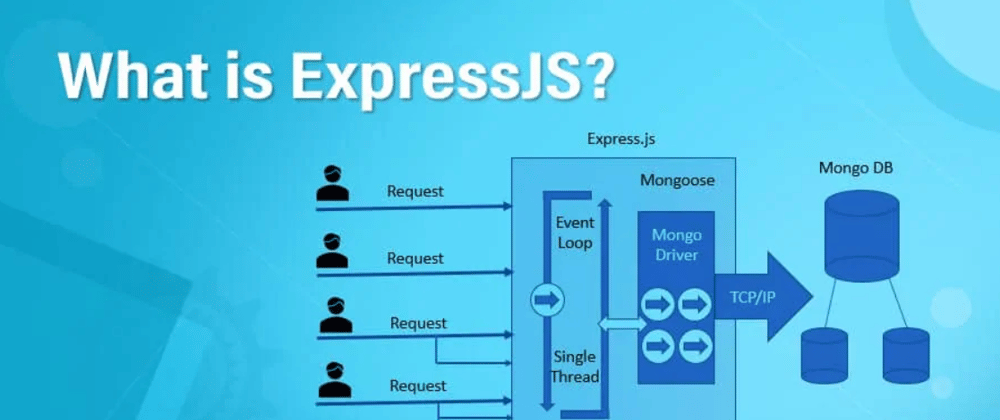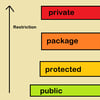Introduction:
Express.js has long been a go-to framework for building web applications with Node.js, offering developers a fast, minimalist, and unopinionated platform for creating server-side applications and APIs. With its robust feature set and vibrant ecosystem, Express.js has become a staple in modern web development. In this guide, we'll dive deep into Express.js, exploring its core concepts, best practices, and practical tips for building scalable and efficient web applications.
-
Introducing Express.js:
- Begin by introducing Express.js and its core principles. Explain how Express.js simplifies server-side development with Node.js by providing a minimalistic and flexible framework for building web applications and APIs.
-
Setting Up an Express.js Project:
- Provide a step-by-step guide for setting up an Express.js project. Walk readers through installing Express.js, creating a basic server, and configuring routes to handle HTTP requests and responses.
-
Handling Requests and Responses:
- Dive into request handling in Express.js. Discuss middleware functions and their role in processing incoming requests, parsing request bodies, and executing route handlers to generate responses.
-
Routing and Route Parameters:
- Explore routing in Express.js and the concept of route parameters. Showcase how to define routes for different HTTP methods (GET, POST, PUT, DELETE), handle dynamic route parameters, and implement route-specific middleware.
-
Middleware and Error Handling:
- Discuss the importance of middleware in Express.js applications and its versatility for performing tasks such as logging, authentication, and error handling. Showcase how to write custom middleware functions and handle errors gracefully using middleware.
-
Working with Templates and Views:
- Address server-side rendering in Express.js applications. Discuss template engines like EJS, Handlebars, or Pug, and demonstrate how to render dynamic views and pass data to templates using Express.js's view engine integration.
-
Serving Static Files and Assets:
- Showcase how to serve static files and assets in Express.js applications. Discuss the use of the built-in express. static middleware to serve static files like CSS, JavaScript, and images, and demonstrate best practices for organizing and managing static assets.
-
Database Integration:
- Explore database integration in Express.js applications. Discuss popular databases like MongoDB, PostgreSQL, and MySQL, and demonstrate how to connect to databases, execute queries, and handle database operations using middleware like Mongoose or Sequelize.
-
Authentication and Authorization:
- Address authentication and authorization in Express.js applications. Discuss strategies for implementing user authentication using libraries like Passport.js, and showcase how to protect routes and resources using middleware-based authorization checks.
-
RESTful API Development:
- Explore RESTful API development with Express.js. Discuss best practices for designing RESTful APIs, defining resource endpoints, handling CRUD operations, and implementing features like pagination, filtering, and sorting.
-
Testing and Debugging:
- Guide testing and debugging Express.js applications. Introduce testing frameworks like Jest, Mocha, and Supertest, and demonstrate how to write unit tests and integration tests for Express.js routes, middleware, and controllers.
-
Deployment and Scalability:
- Discuss deployment strategies for Express.js applications. Showcase how to deploy Express.js applications to platforms like Heroku, AWS, or DigitalOcean, and address scalability considerations such as load balancing, caching, and horizontal scaling.
-
Community and Resources:
- Encourage readers to join the Express.js community and explore resources for learning more about Express.js. Share recommended tutorials, documentation, and community forums where developers can connect, learn, and collaborate on Express. js-related projects.
-
Conclusion:
- Summarize the key takeaways from the guide and emphasize the significance of Express.js as a powerful framework for building web applications with Node.js. Encourage readers to apply the concepts and techniques learned in their projects and share their experiences with the Express.js community.
-
Call to Action:
- Invite readers to share their Express.js projects, experiences, and questions in the comments section. Please encourage them to join the Express.js community on platforms like dev.to to connect with fellow developers, exchange knowledge, and collaborate on exciting projects.
By following this comprehensive guide, developers can gain a deep understanding of Express.js and leverage its capabilities to build robust, scalable, and efficient web applications with Node.js. Happy coding with Express.js!







Top comments (0)